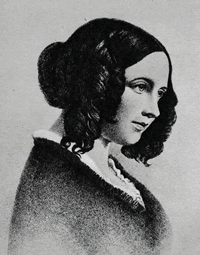
All would have been well if the truth had remained buried under the dusty files of forgotten letters from the past in the bottom drawer of History. Alas, it happened – a recent revelation of the letters delineating Charles Dickens, a literary great whom I admired, concocting a plot to send his sane wife to a mental institution in order that he and his 18-year old paramour could be forever together.
How and why these forgotten letters have been brought into light out of the blue are clandestine from my reading of the article about such letters from the recent issue of a history magazine. Besides, the possession of the letters is curiously divided between the Atlantic Ocean because some of the letters are held by Harvard University in the U.S., while the others by the University of York in the U.K. The article does not provide the reader with more detailed information as to whys and wherefores of such divisional custodianship of the letters, not to mention the background of such uncovering of the provocative textual artifact that would certainly do no good on Dickens in any way. Methinks it would be a possibility that a descendant of the estranged wife Catherine Hogarth or even of their eldest child might have staged this rather dramatic publicity of the letters revealing the other side of the great writer out of indignation as comeuppance for his sins of adultery and perjury, which in a twist of whimsical irony befits the ethos of #MeToo Movement.

The content of one such letter written by a neighbor of Catherine Hogarth details the following: (1) Dickens at the age of 45 fell madly in love with 18-year old actress named Ellen Ternan: (2) it was the death-knell of the marriage, pace Dickens’ complaints about his legal wife; (3) his wife confronted him when a bracelet meant for the young actress providentially was delivered to her, after which she separated from him by moving to a house in Kent with their eldest child. The rest of the children were in the care of their aunt, while Dickens continued his relationship with the actress until his death; and (4) after the separation, Dickens tried to seek for divorce from the court by trying to prove that his wife was mentally unstable and that she would be sent to an asylum. However, the attempt to seek such remedy was foiled by the absence of proof of her insanity.
The whole scandalous charade of this great literary figure reminds me of the axiom by Ralph Waldo Emerson that the admiration of great works of geniuses should not become the worship of idols. That is, one must disembarrass the idea of a story from the person of the author, who is only a fallible, whimsical, temperamental human. The works of writers, I believe, are a separate reality based upon their epistemological knowledge magically alloyed in imaginativeness, ideals, and dreams in the peculiar alchemy of literature that deserves of distinguished approbation and recognition. In this regard, my disappointment with Dickens as a person should be kept separate from my admiration of the humane characters he created and the benevolent stories he entertained. Sometimes, it’s better not to know much about whom you like lest his follies and faults should dishearten you against your wishes and imaginations. For these reasons, I am more in sorrow than in anger upon reading this troubling article about Dickens, one of my all-time favorite writers, which leads me to the lamentation of Et tu, Mr. Dickens?

You must be logged in to post a comment.